Audio
Majella Knobel: "Touch" - open air movie
Ablequest by
2RPH3 seasons
9 February 2024
14 mins
Introducing Australia's first pictureless feature film, TOUCH, showing in Sydney.

Ablequest is a series of 15 minute programs which examines developments in assistive technology and initiatives for those people living with a wide range of disabilities. Presented by Barbara Sullivan, Marni Roper and Elaine Wziontek.
In this program:
Westpac and Mastercard have collaborated to produce Australia's first pictureless feature film, TOUCH, which premieres on 13 Feb at the Westpac Open Air Cinema. Majella Knobel, head of access and inclusion at Westpac, talks to Barbara Sullivan about the film and the bank's many other accessibility initiatives.
Original air date: 09.02.24
Speaker 1 00:03
With information on the latest developments in assistive technology and initiatives from the studios of two RPH in Sydney. RPH Australia brings you Ablequest.
Speaker 2 00:21
Hello, I'm Mani Roper. Banks often cop a lot of flack. They're criticised for not putting a customer and employee needs at the forefront. But Ablequest takes a different look at a particular bank today and we explore the way that Westpac is leading the way in accessibility initiatives. At its helm is Majella Knobel in her role as head of access and inclusion. Her remit includes developing and delivering on Westpac's access and inclusion strategy. This spans numerous initiatives and programs of work to make the bank's products, services and communications accessible to all customers and employees. This includes those with a disability, illness and injury, or who are neurodiverse. Barbara Sullivan spoke to Majella to hear more.
Speaker 3 01:13
Hello Majella, thanks for joining Ablequest today. From everything I see, Westpac is leading the way in accessibility initiatives for your banking customers, with you at the helm as its most passionate advocate. And by the way, congratulations on being named 223 changemaker of the year by the Australian Network on Disability.
Speaker 4 01:34
A and D. Thank you. It was actually a surprise and I feel quite privileged to receive it.
Speaker 3 01:41
You're also expanding your drive for access and inclusion to the wider community. And the one that's foremost in my mind today because it's upcoming, is the pictureless, feature length film called Touch, which is about to premiere at the Westpac Open air Cinema, Australia's first, I believe, first feature length, pictureless, feature length film. Tell us about this breakthrough endeavour for audiences who are blind or with low vision.
Speaker 4 02:10
It's really exciting. It is an Australia first and a world first. So we, as in Westpac, did partner with Mastercard to create this amazing film that will launch at the open air cinema in Sydney on the 13 February. So we were really conscious around understanding what content and I guess, experiences of people that are blind or are low vision in the community and their views on going to the cinema. Experiencing such a life opportunity like touch, the movie is, I guess, a way of sharing an experience that everyone should be entitled to. So for us, we really thought about what the needs were of a community that sometimes get left behind when it comes to films because it is very visual and we know that communities are wanting to experience the same things as their colleagues, neighbours, et cetera.
Speaker 3 03:09
Describe what the audience can expect from the film.
Speaker 4 03:12
So it is a movie without pictures. It's all around the power of inclusiveness through sound, having the audio, having the music to bring the experience. There will be some visual on screen, but not actually as you would see it if you were fully sighted. And we're going to the cinema and watching it. So it's for everyone. That is correct. Anyone can go. And we've already seen the ticket sales out there increase in popularity. People are wanting to go. I know for stakeholders and employees that I work with, they're very excited about the film and are really keen. And they don't have a vision impairment. They're loving the thought of it. They're loving the opportunity to be able to experience such an opportunity, that's a first. And it's not about patronising for individuals who have a vision impairment, it's about making it inclusive for everyone. So regardless of what disability you have, everyone is welcome to join and come to the cinema experience on the 13 February.
Speaker 3 04:18
13 February. So it premieres then other future showings or just that one night?
Speaker 4 04:24
At this point, it's just at the open air cinema. If you search touch movie and open air cinema, it'll come up.
Speaker 3 04:30
So what measures are you taking to give practical support to the patrons on the night the film actually screens?
Speaker 4 04:37
We've spent a lot of time working with Mastercard and the open air cinema team to make sure that the experience on the night will be as inclusive and accessible for all. That's something that hasn't just happened overnight. We've spent many months planning, I'm sure, revisiting, looking at what the opportunities are. So if I think about some of the practical support that will be provided. So there's going to be accessible amenities for bathrooms. If you're wanting to order food, there'll be support there for people if they are unable to use the QR code, we'll have way finding in place. Braille tactile signage will be set up throughout the whole venue. 2d directional maps will be available on the night of the 13 February. Accessible ramps and accessible seating is available for people that will be attending the open air cinema.
Speaker 3 05:30
That's an enormous effort at set up for one night screening, isn't it? That's very holistic.
Speaker 4 05:37
Exactly. And some of the things I've mentioned is already available for the open air cinema, so it won't be just for that 13 February screening. So things like the high vis tape on steps, the tactile will be available throughout the whole open air session experience for the whole of this year, when it is down on the harbour, we've really thought about how we make it inclusive, not just for the night of the 13 February, as you've mentioned, you.
Speaker 3 06:04
Collaborated with Mastercard on this, and I understand you've worked with them on other accessibility initiatives. Could you talk about those?
Speaker 4 06:13
The one we're really proud of, and it is, again, Australia. First we rolled out our touch cards, and that's where the whole touch movie campaign came from. So back in June last year, Westpac rolled out our first brow and notch cards. For each of our debit, credit and prepaid cards, we have a notch cutout and a brow tactile on them. So for our credit card we have a square notch and the brow dots for the letter c. For our debit cards we have a round cutout and the letter d in Braille. And for prepaids we have a triangle shape and the letter P. So for us, that's been really important to get that right, to make sure that our community who are blind or low vision are able to access the right card at the right point in time. And it's not only important for our community that have low vision, but we also made a business decision that all our customers get the same card. So there's no an us and them approach. It's all about being inclusive for everyone. So our community who identify as being blind or are low vision don't need to say, hey, I need a different card to everyone else. Our whole community, all our customer base gets the same card. So everyone gets the notch cut out and the brow tactile.
Speaker 3 07:36
So, addressing your customer initiatives, what other banking support have you rolled out for people who are blind or low vision?
Speaker 4 07:44
I love this question because we have so many opportunities and so many products and services that we've really invested time in to get it right. And one of them is our FPOs terminal. So many of us in the community often tap and pay at the counter, whether we're in a small gift shop or buying at our local fruit and veggie shop. So the fPOs terminals are often pin on glass, so there's no physical keypad for us. We've really spent a lot of time working with a vendor to make sure that what we design is more inclusive and more accessible. And these terminals have accessibility mode, they have assistance mode and a pin entry to enable vision impaired cardholders to enter their pin independently. So it's got the chime. When you turn it on, it will talk to you to make sure you're selecting the right account. It also has the tactile around the edge so you can navigate to find the keypad on the smooth screen, but it doesn't call out your pin. So we're really conscious of making sure that people cannot hear what's being called out. It will read everything up until that point, but when you're entering your pin, it'll just give you some audio sound. It won't identify to anyone around you what your pin entry is. And it also has the opportunity for colour contrast. So if someone has low vision, they can change the colour contrast on that terminal.
Speaker 3 09:10
When they make their purchase and it comes in time to pay, they have to say, could you put the FPOs terminal on accessibility mode?
Speaker 4 09:17
Yes, it's all built in.
Speaker 3 09:19
And what is FPOs air? Is that also for customers?
Speaker 4 09:23
Fpos air we rolled out again last year. It's very exciting app that is designed for both merchants and customers who have low or no vision. So we're really conscious to make sure that both experiences from a small business perspective or a sole trader. So if you're at a weekend market, an individual can use their own device, whether it's Android or Apple, and they can download the app. And then therefore from that point, they can actually use the option of having the app work for them if they have a vision impairment. So, same as the fbos terminal that we have in our shop, it works on an individual's own phone.
Speaker 3 10:08
So you mentioned the app. What about the Westpac app? Is it easy for customers with no or low vision to use?
Speaker 4 10:15
Again, it's something we've invested a lot of time in around the Westpac app. I'm quite proud of what we've created when it comes to the accessibility on our app. And I know our teams internally across the Westpac group, spend a lot of time and it's built into their operating rhythm to make sure that they design an app that works for people who have low vision or are blind. So it will work for people that use voiceover, it will work for people that use talkback, and it will work for people that choose to use or need to use Zoom or enlarge their screen. So if we think about some of the options, we look at making sure the colour contrast is correct, we make sure that our icons and our pictograms are labelled correctly, so that someone who is using assistive technology can understand where they need to go and how to get there. We make sure that the simple tasks that people need to do, so making a payment, looking up their bank balance is all done in easiest way, but also streamlined. So I'm conscious of sometimes we talk about the easiest way and for some people it isn't always easy. So making sure that less steps are involved and making sure that what we've created is usable by our customers through testing, retesting, getting people involved who have disability or live with disability to make sure that we are hitting the mark.
Speaker 3 11:42
I know on your website you have the Red virtual assistant. Other special ways that Red can work for people with low or no vision.
Speaker 4 11:51
Red is a really good tool for people to find information. If we look at the way that AI works these days, Red's very much around enabling people to ask questions, whether it's through voice or through entering it via text on the screen. And Red will come back with options of answering that question. Also, Red is smart in actually understanding that if you put in there around having disabilities, I can't see, I can't hear, I have a speech impediment, I'm blind. It will pick up on keywords and either direct you to a banker during business hours or let you know that at this point in time, if it is after business hours, that please reach back out to us during business hours the following day.
Speaker 3 12:39
Now, beyond the function of the bank itself and you're supporting community access and inclusion initiatives, and we talked about the film. Understand you're involved with Millie Boyle, a rugby league player with an inclusive skills project for young people with disabilities.
Speaker 4 12:56
Yes. That's a really exciting partnership that we've signed up to this year with the trainee group programme. It's a really good initiative for people that specifically live in regional areas. So we do know that often there's not as much support out of the larger cities when it comes to people with disability and getting community programmes up and running. So through the training group programme, they're able to run training group programmes for school age children and recent school leavers. And the partnership is emblematic for the work that Westpac's doing in the access and inclusion space.
Speaker 3 13:39
Magella, it's been very interesting and illuminating speaking with you, and you are clearly making a difference. Thank you for joining us today, Magella.
Speaker 4 13:47
Thank you, Barbara. It's been a privilege.
Speaker 3 13:49
I've been speaking today with Majella Knobel, head of access and inclusion at Westpac bank.
Speaker 1 14:02
You have just been listening to Ablequest, a program that looks at developments in assistive technology from Barbara Sullivan and Marnie Roper. Thank you for listening and goodbye till next program.
Continue listening

Blind Sports Australia CEO Matt Clayton speaks about its work with blind and vision impaired athletes across 21 sports.
Matt Clayton - Blind Sports Australia
Ablequest by 2RPH
5/5/2023
•13 mins
Audio

Vivid, Sydney's celebration of creativity, seen from a disability access focus by its director.
Gill Minervini - Vivid
Ablequest by 2RPH
19/5/2023
•14 mins
Audio

This program discusses dance movement therapy and how it works - featuring Cecilia King of the Dance Therapy Association.
Cecilia King - Dance Therapy
Ablequest by 2RPH
14 mins
Audio

What are the challenges of providing audio description on Oz TV? Hear Lauren Henley, Aust Federation of Disability Organisations.
Lauren Henley - Audio Description
Ablequest by 2RPH
16/6/2023
•14 mins
Audio

In Part 1 of a 2RPH interview, assistive tech expert David Woodbridge explores latest innovations to make everyday life easier.
David Woodbridge - Tech Update Part 1
Ablequest by 2RPH
30/6/2023
•14 mins
Audio

Features Robert Duff-Silsby of Luddi, Perth company developing assistive devices for all people and bodies.
Robert Duff-Silsby - Sexual Wellbeing
Ablequest by 2RPH
13 mins
Audio

In Part 2 of this conversation with 2RPH's Ablequest, expert David Woodbridge reviews latest assistive technologies.
David Woodbridge - Tech Update Part 2
Ablequest by 2RPH
28/7/2023
•14 mins
Audio

Matt Clayton of Blind Sports Australia and the Oz team's Chef de Mission, discusses the forthcoming World Blind Games in the UK.
Matt Clayton - World Blind Games
Ablequest by 2RPH
11/8/2023
•13 mins
Audio

Prof Kim Marriott of the Monash Assistive Technology and Society Centre, talks about the purpose and work of the Centre.
Kim Marriott - Monash Assistive Technology and Society Centre
Ablequest by 2RPH
25/8/2023
•13 mins
Audio

Ablequest features an interview with Serena Ovens, new CEO of Assistive Technology Supplies Australia or "ATSA".
Serena Ovens - Assistive Technology Supplies Australia
Ablequest by 2RPH
14 mins
Audio

Part 1 of an interview on the voice-activated app, Bindi Maps.
Anna Wright - Bindi Maps (Part 1)
Ablequest by 2RPH
14 mins
Audio

This is Part 2 of an interview with Dr Anna Wright, explaining how Bindi Maps works.
Anna Wright - Bindi Maps (Part 2)
Ablequest by 2RPH
14 mins
Audio

Artist Ebony Wightman of disability-led We Are Studios talks about art and challenge.
Ebony Wightman - We Are Studios
Ablequest by 2RPH
20/10/2023
•13 mins
Audio

Prof. Leeanne Carey discusses the SENSe program, her team's world-first therapy to help stroke survivors.
Leeanne Carey - SENSe Therapy
Ablequest by 2RPH
2/11/2023
•13 mins
Audio

Youthworks Accessibility Minister Bec Baines talks of making church accessible to young people with disabilities.
Bec Baines - Youth and Worship
Ablequest by 2RPH
16/11/2023
•14 mins
Audio

Nikki Hind, Australia's first blind fashion designer, discusses her work.
Nikki Hind: Blind Grit
Ablequest by 2RPH
1 December 2023
•14 mins
Audio

Dr Dimity Williams, family GP, recommends spending more time in nature - and a "green hour" each day.
Green Hour: Dr Dimity Williams
Ablequest by 2RPH
5 December 2023
•14 mins
Audio

Imagine sitting in a wheelchair for hours, being unable to move your fingers or arm to do simple things like pick up a glass.
Konstanze Hager - Bateo
Ablequest by 2RPH
Konstanze Hager - Bateo
•14 mins
Audio

Action Audio is a new language being created to transcend sport.
Machar Reid - Action Audio
Ablequest by 2RPH
Machar Reid - Action Audio
•14 mins
Audio

What a difference one person with experience, passion and energy can make to many lives.
Julie Ross-Edwards - Head High
Ablequest by 2RPH
Julie Ross-Edwards - Head High
•14 mins
Audio

Driver educator outlines what's needed for a person with disability to get a driver's licence.
Ronak Shah: on-road driving education
Ablequest by 2RPH
12 January 2024
•14 mins
Audio

Vision Australia's Christo Sarantakis talks of his life, blindness and assistive tech changes.
Christo Sarantakis of Vision Australia
Ablequest by 2RPH
26 January 2024
•14 mins
Audio

Introducing Australia's first pictureless feature film, TOUCH, showing in Sydney.
Majella Knobel: "Touch" - open air movie
Ablequest by 2RPH
9 February 2024
•14 mins
Audio

An expert discusses the use of horticultural therapy for people with disabilities.
Steven Wells: horticultural therapy
Ablequest by 2RPH
23 February 2024
•14 mins
Audio

Features articles on latest blind-assistive tech including a new bus app and smart ear buds.
Assistive tech news catchup
Ablequest by 2RPH
8 March 2024
•14 mins
Audio

Features an innovative hospitality industry training program for people with disabilities.
Saraya O'Connell - Hotel Etico Independence Program
Ablequest by 2RPH
22 March 2024
•14 mins
Audio

Guests discuss the Obi robotic dining assistant for people with upper arm disabilities.
Hugh Kingley and Rachel Dekkar: Obi
Ablequest by 2RPH
19 April 2024
•14 mins
Audio

A spy-themed computer program tackles the mystery of social encounters - outlined by its company's CEO.
Kathleen Davey - Social Science Translated
Ablequest by 2RPH
3 May 2024
•14 mins
Audio

A Sydney organisation delivers creative arts and life skills to people with disabilities.
ChoppA Green - Studio Artes
Ablequest by 2RPH
17 May 2024
•14 mins
Audio

An award-winning Central Coast NSW disability service shares its successful strategies.
Lonestar Makoni - Breaking Barriers Disability Services
Ablequest by 2RPH
31 May 2024
•14 mins
Audio

Part 1 of a conversation with an Australian neuroscience research pioneer about benefits of music in brain injury recovery.
Professor Sarah Wilson (part 1)
Ablequest by 2RPH
14 June 2024
•14 mins
Audio

Part 2 of a conversation with a leading neuroscientist of benefits of music in brain injury recovery.
Professor Sarah Wilson (part 2)
Ablequest by 2RPH
28 June 2024
•14 mins
Audio

A CEO talks about his company's award-winning assistive physical therapy device.
Justin Keenan - LusioMate
Ablequest by 2RPH
12 July 2024
•14 mins
Audio

Information about a program teaching good cyber-security practices to make daily life safer.
Jess Wilson: Be Connected
Ablequest by 2RPH
26 July 2024
•14 mins
Audio

A veteran print disability broadcaster with macular degeneration shares her experiences.
Teresa Plane - 2RPH
Ablequest by 2RPH
9 August 2024
•14 mins
Audio

The founder of a blind-assistive technology company shares latest developments.
Peter Ford - Control Bionics (part 1)
Ablequest by 2RPH
6 September 2024
•14 mins
Audio

Part 2 of an interview with the head of an innovative blind-assistive technology company.
Peter Ford - Control Bionics (part 2)
Ablequest by 2RPH
20 September 2024
•13 mins
Audio

Looks at a project to better inform refugee and migrant women on AI.
Good Things - Jess Wilson
Ablequest by 2RPH
4 October 2024
•14 mins
Audio

An expert with lived experience corrects some widespread misconceptions about stuttering.
Dale Williams - Stuttering Awareness Day
Ablequest by 2RPH
18 October 2024
•14 mins
Audio

An inventor discusses his an innovative cane tip to help people with blindness or low vision.
Peter Rickards - Sensaball
Ablequest by 2RPH
15 November 2024
•13 mins
Audio

Part 1 of an interview with an Australian expert on low-vision-assistive technology, on AI and other developments.
David Woodbridge (part 1)
Ablequest by 2RPH
29/11/2024
•14 mins
Audio

Conclusion of an interview with a leading Australian expert on blind-assistive technology.
David Woodbridge (part 2)
Ablequest by 2RPH
13 December 2024
•14 mins
Audio

Looks at the leading stroke treatment work of the Royal Rehabilitation Hospital, Ryde NSW.
Jason Redhead and Graham Cooper of Royal Rehab Ryde
Ablequest by 2RPH
10 January 2025
•14 mins
Audio

An innovative social media platform aims to address isolation and loneliness in the disability community.
Steve Bear - Alvie
Ablequest by 2RPH
7 February 2025
•12 mins
Audio

Australia's largest provider of Auslan sign services outlines its important work.
Brett Casey - Deaf Connect
Ablequest by 2RPH
21 February 2025
•14 mins
Audio

Looks at an Australian organisation's work at helping men seek help and build self-awareness.
Tommy Herschell - Find Ya Feet
Ablequest by 2RPH
7 March 2025
•14 mins
Audio

A speech pathoplogist discusses her work with young people's complex communication needs.
Denise West - Scope
Ablequest by 2RPH
21 March 2025
•14 mins
Audio

A vision-impaired disability rights advocate talks of her work and learning podcast skills.
Freya Wolf
Ablequest by 2RPH
4 April 2025
•14 mins
Audio

A leading Australian eye researcher talks of his team's work in creating new hope for people with retinal damage.
Raymond Wong - Centre for Eye Research Australia
Ablequest by 2RPH
18 April 2025
•14 mins
Audio

A wheelchair-using business owner, facilitator and car rally driver shares experiences and insights.
Mel Harrison - Sitting Low, Reaching High
Ablequest by 2RPH
2 May 2025
•13 mins
Audio

Disability Pride Month in July promotes awareness about people with disability and also celebrates individuals with disability.
Hannah Solomons - Sydney Disability Pride
Ablequest by 2RPH
Hannah Solomons - Sydney Disability Pride
•14 mins
Audio
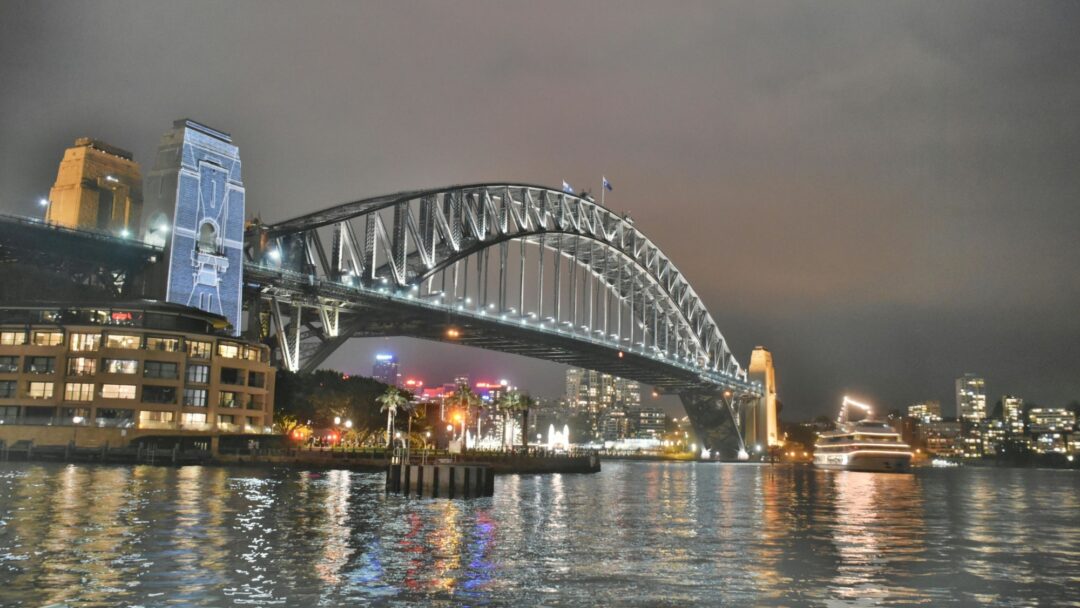
Deb Roach is a three-time pole dancing world champion yet she has only one arm.
Deb Roach
Ablequest by 2RPH
Deb Roach
•13 mins
Audio
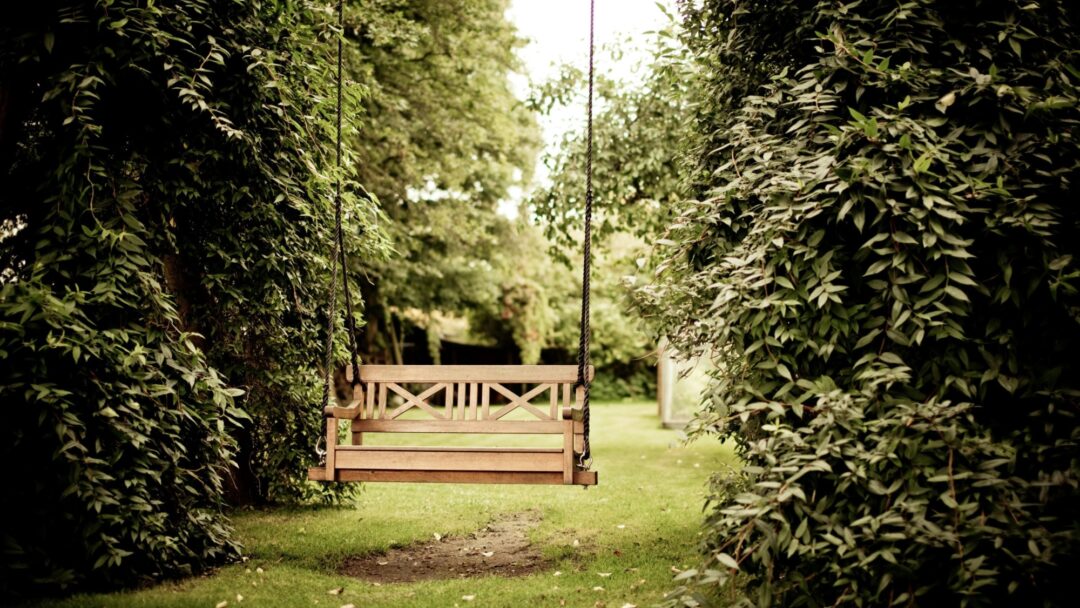
Being in nature is good for you whether it is being in the garden or walking along the beach.
Kayte Kitchen - Admirari Nature Therapy
Ablequest by 2RPH
Kayte Kitchen - Admirari Nature Therapy
•14 mins
Audio

Music can evoke emotions that bring back memories and the same is true for people living with dementia.
Zara Thompson - Music Therapy
Ablequest by 2RPH
Zara Thompson - Music Therapy
•14 mins
Audio

Laura Boccanfuso is founder and CEO of Van Robotics, a social robotics company based in South Carolina in the United States.
Laura Boccanfuso - Van Robotics
Ablequest by 2RPH
Laura Boccanfuso - Van Robotics
•14 mins
Audio
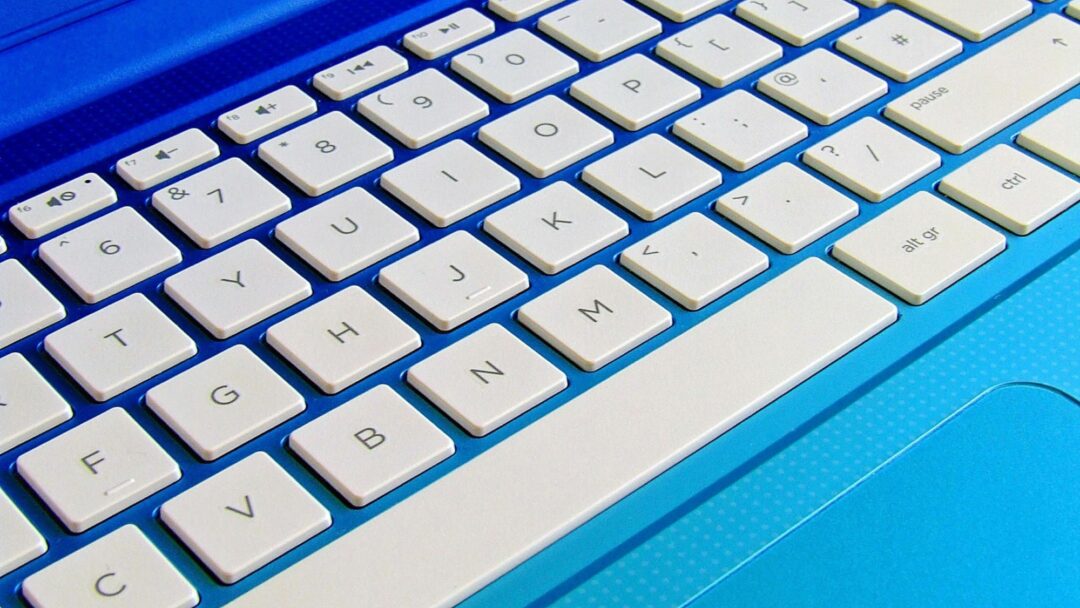
Two years ago Maggie O'Connell, in her mid 20's never had a full time job.
Maggie O'Connell - AFP
Ablequest by 2RPH
Maggie O'Connell - AFP
•14 mins
Audio
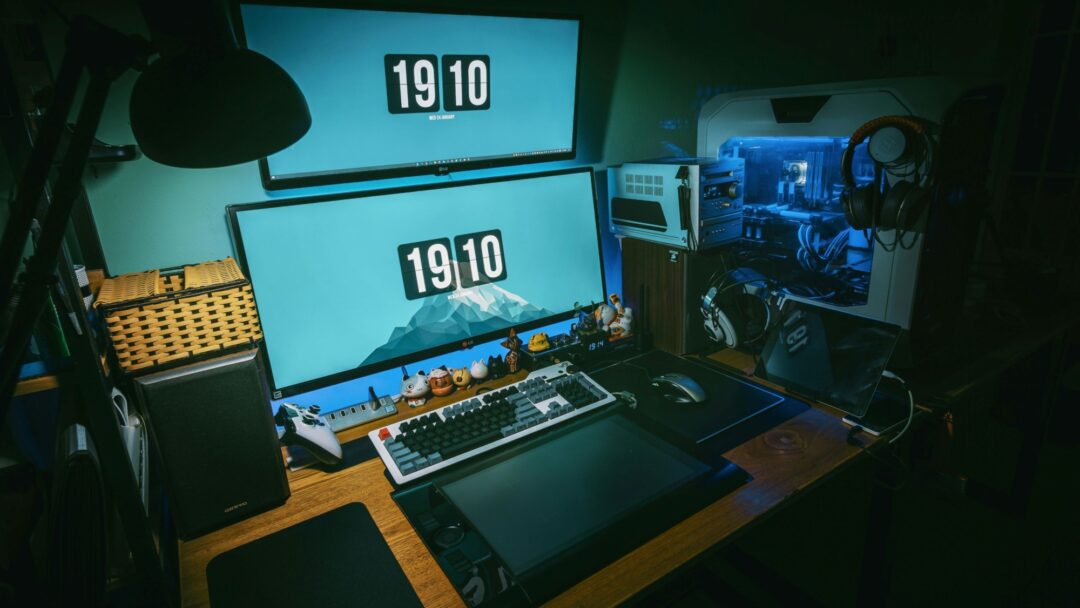
Julie Ross-Edwards, founder of Head High Disability Services, returns to Ablequest to speak more about Head High's philosophy and special approach.
Head High (Update)
Ablequest by 2RPH
Head High (Update)
•13 mins
Audio
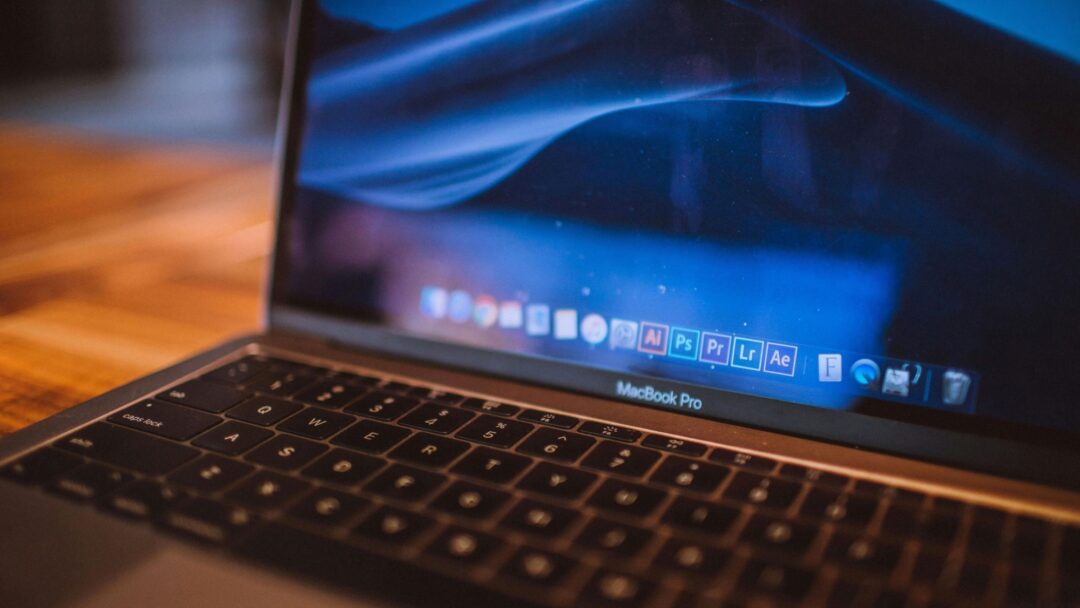
David Woodbridge, an expert in assistive technology for people with no or low vision, is a regular guest on Ablequest.
David Woodbridge
Ablequest by 2RPH
David Woodbridge
•14 mins
Audio

Pete Horsley is the Founder of Remarkable, a global start up and initiative of the Cerebral Palsy Alliance.
Pete Horsley - Remarkable Disability Tech Summit
Ablequest by 2RPH
Pete Horsley - Remarkable Disability Tech Summit
•14 mins
Audio